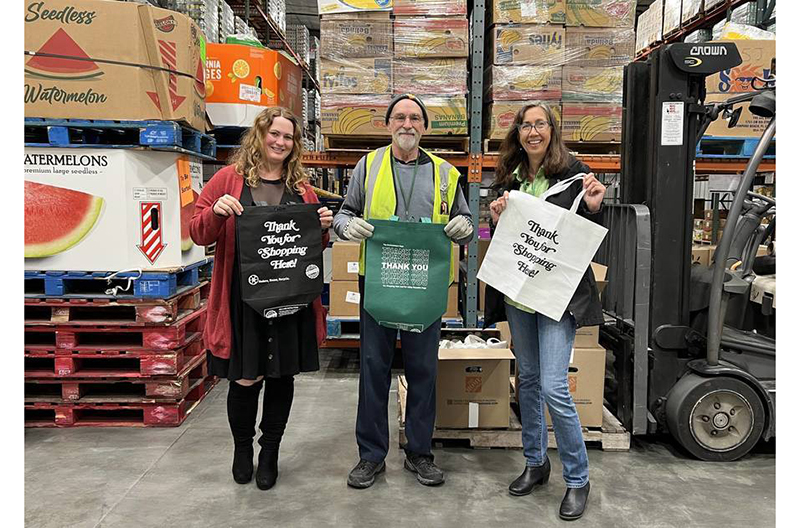In a limited rollout over the past year, the New Jersey Clean Communities Council – in cooperation with a key partner, Goatote, and other stakeholders – launched a plan through which residents can donate unwanted reusable grocery bags to local food banks and pantries.
During that span, the NJCCC estimates that hundreds of thousands of bags have been collected, sanitized and distributed to those in need. One project, for example, is from Goatote, which reported its 24 drop-off sites throughout New Jersey generated 130,000 reusable bags.
Other government partners have coordinated their own reusable bag redistribution projects, increasing the number of bags that have been cleaned and donated statewide.
“This closed-loop project has greatly exceeded our expectations,” said NJCCC Executive Director JoAnn Gemenden. “Working with our partners around the state, permanent donation bins were set up at various government sponsored locations, as well as one-day special events.
“When we recognized there was a gap with extra reusable bags and the need for our food banks and food pantries to acquire [them], we became the lynchpin to bring all of those stakeholders and partners together to close the gap.”
According to NJCCC, there are several reasons why people have extra reusable grocery bags following the 2022 state law that ended he practice of stores giving out single-use plastic bags. Online stores, as well as supermarket delivery services, provide reusable bags to fulfill their orders, which can generate surplus.
[RELATED: NJFC Credits Membership For State’s Ban On Plastic Bags]
The NJCCC, which advocated for the state’s single-use bag ban, has taken on the role of ensuring its success and sustainability. To date, it is estimated that more than 8.4 billion single-use bags have been removed from the waste stream in New Jersey each year because of the law.
“Just imagine the impact in New Jersey if we had hundreds of drop-off locations,” Gemenden said. “We would then be able to ensure that any New Jerseyan who has extra reusable bags can easily donate them in their local community, rather than store them or, worse, throw them out. The key to this project is convenience.”
The cost to reuse a bag is about 70 percent less than to buy new, which follows the intent of the state law that encourages reuse, Gemenden said.
NJCCC oversees the education and engagement efforts of the state’s bag ban through its Litter Free NJ program, in a role mandated by the state legislature.
New Jersey Food Council President and CEO Linda Doherty, who is also president of NJCCC’s board of directors, said the reusable bag project is a “first in the nation” initiative.
“We have built this project from the ground up,” she said. “There is no state that is as organized in addressing the need for reusable bags to be collected, sanitized and donated to those in need. The results have been both instant and effective. With the right resources, and a steady funding stream from the ongoing New Jersey litter tax to support the costs of sanitizing tons of bags statewide, there is no doubt this project can be even more impactful.”
Renee Lundahl, a co-founder of Goatote in Hackettstown, said her company’s collection project was launched in January 2023, bringing together retailers, recyclers, food banks, community organizations, the NJCCC and the NJFC.
A Reusable Bag Resource Center was posted on LitterFreeNJ.com, which guides residents to donation locations. The online center also includes open-source marketing materials, as well as a QR code.
“This innovative and impactful project provides the key connection between stakeholders, residents with extra bags and the food pantries and food banks that truly need them to service the public,” Lundahl explained. “By combining comprehensive logistics, eco-friendly cleaning processes, and redistribution, a blueprint for the success of this project was created.”
The first drop-off location opened in Secaucus last May, with more spots added at recycling centers, libraries and other public buildings.
Moreover, the NJCCC and its partners have set up drop-off locations at street fairs, paper-shredding events, concerts and other events. Lundahl noted that there is a spike in collection during the warmer months, when there are more outdoor community events, as well as during Earth Month in April.
Municipalities and counties can use their annual Clean Communities grant funding from the state – supported by a special tax on companies that generate the most litter – to participate in the bag redistribution project.

